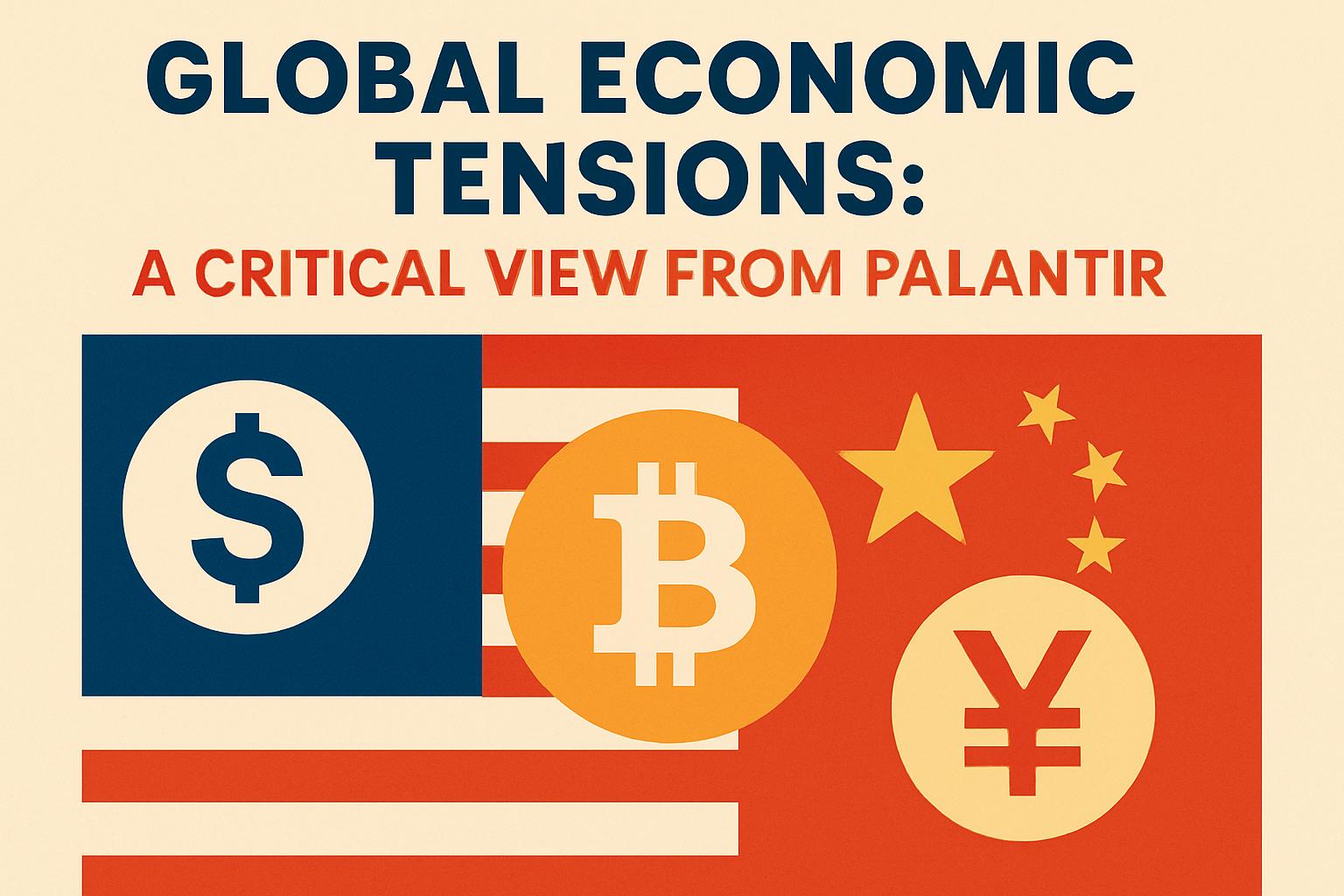In a world where economic borders are constantly tested, Palantir’s CTO, Shyam Sankar, has taken a bold stand criticizing NVIDIA’s CEO Jensen Huang for his amicable stance towards China. Sankar’s comments come at a time when the U.S.-China trade tensions are making headlines, sparking debate over the balance of industries and influence on a global scale.
The Critique of U.S.-China Relations
Shyam Sankar’s recent remarks highlight a growing concern among global tech leaders: the intricate dependency between the United States and China. Sankar didn’t mince words, asserting that acknowledging this dependency is crucial for addressing the broader trade conflict. Critically, he targeted Jensen Huang’s notion that being labeled as a ‘China Hawk’ is not a prestigious badge but a mark of shame.
Huang advocates for a harmonious U.S.-China relationship, suggesting that coexistence could be beneficial. However, Sankar views this as a denial of the economic war reality, warning that such complacency only plays into the hands of adversarial economic players. In his perspective, every investment and purchase is a tactical decision in this ongoing economic battle.
American Tech vs. Chinese Growth
The core of the debate revolves around NVIDIA’s market strategy and its implications. Huang’s resistance to chip export restrictions, arguing that they could inadvertently empower Chinese tech giants like Huawei to establish global standards, contrasts sharply with Sankar’s belief that China strategically partners with foreign firms only to eventually edge them out once domestic capabilities are bolstered.
Sankar’s concerns reflect broader strategic dangers, echoing the reality that NVIDIA’s market share in China has dramatically dwindled from near dominance to marginal due to escalating trade controls.
The Role of American Corporations in China
Sankar doesn’t just point fingers at China; he holds American giants accountable for their roles in China’s ascent. Companies like Apple, Tesla, and Intel have heavily invested in China, becoming integral to its manufacturing prowess. This dependency poses a dilemma—despite high operational costs, China offers unparalleled supply chain completeness, enticing U.S. firms to remain embedded despite trade frictions.
A Path to Industrial Sovereignty
Despite not advocating for complete decoupling, Sankar stresses the importance of the U.S. rebuilding its industrial base and seeking alternative markets and supply chains. He envisions a prolonged, challenging journey towards reducing reliance on China, suggesting it’s essential for preserving American sovereignty amidst China’s global ambitions.
Quoting Upton Sinclair, Sankar reminds us that often, the greatest difficulty in recognizing a problem lies in the vested interests in perpetuating it. This notion underscores the complex dynamic where economic benefits can overshadow strategic foresight.
Challenges of Rebounding Manufacturing
Potential hurdles abound, not least the cultural divergence in labor practices between the U.S. and Asia. American worker rights and the high cost of labor contrast sharply with Asia’s industrious spirit. These differences pose significant barriers to any attempts to repatriate manufacturing operations from Asia back to the U.S.
Ultimately, despite enticing incentives to lure companies back, the density of supply chains found in Asian markets remains unparalleled, complicating repatriation efforts in the short term.

![[News] Bitcoin at a Turning Point? 10x Research Signals a Bullish Macro Shift Ahead](https://cryptoexplores.com/wp-content/uploads/2025/06/new20250616.jpg)
![[News] Binance Lists $HOME, the Gas-Free, Bridge-Free All-in-One DeFi App](https://cryptoexplores.com/wp-content/uploads/2025/06/news20250617.jpg)